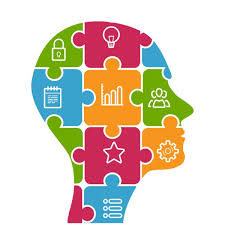“Urbanization brings Anxiety, Anxiety during pregnancy or in genes leads to special effects or Special kids.” RB
Autism:
A developmental disorder that reduce the ability to interact and communicate socially.
It impact nervous system and also affects child overall social, physical, emotional and cognitive health.
Severity and range may vary from child to child. Common symptoms are difficulty during communication, social interaction and repetitive behaviours.
Early diagnose along with family, educational and behavioural therapies can reduce impact and support child learning and development.
Signs of autism
Common signs of Autism include:
- Particular about Rules and routines
- Avoiding eye contact
- Delayed speech and communication skills.
- Upset by minor changes.
- Unexpected reactions to sounds, tastes, sights, touch and smells
- Difficulty understanding other’s emotions, feeling etc.
- Repetitive behaviour such as flapping hands.
- Not responding your name during early age by 12 months.
- Not responding your objects during early age by 12-18months.
Human may experience:
Psychological: Lack of sense of humor
Cognitive: Problem paying attention or interest in particular activities
Development: Reading, Learning and speech delay or disability in a child
Behavioral: Poor eye contact, impulsive/compulsive behavior, inappropriate social interaction, Self-Harm or repetitive words or actions.
Solution of Autism:
- Behavioral Therapy
- Family Therapy
- Anger Management
- Applied Behavior Analysis
- Sensory Processing
Behavioral Therapy:
Behavioral therapy focused on changing unfavorable behavior associated with anxiety, stress and pain.
Education Therapy:
Family Therapy: Family therapy helps family members communicate more effectively and resolve conflicts among family members.
Applied Behavior Analysis:
Applied behavior analysis teach child learn social skills by cultivating positive behavior.
Anger Management:
Anger management involves practicing mindfulness, trigger avoidance and coping mechanism to minimize destructive emotions outbursts.
Sensory Processing:
Sensory Processing involves practicing activity to enhance nervous system sensitivity and turn them into appropriate motor and behavior responses.
Three level of Autism:
Level1:
Level-1 Autism is mildest. Children with Level 1 Autism find difficulty to communicate appropriately with others. A child with level 1 may speak full sentences and also communicate, however may find difficult in engaging in back and forth conversation with others. They may also find difficulty to make friends.
They may also face difficulty moving from task to another or starting new activity. They may also find difficulty in planning their activities.
Level 2:
Children with level 2 Autism will have more apparent problems with verbal and social communication in comparison with level 1. Similarly, they may find it harder to change focus from one activity to other activity.
Children with level 2 Autism engage in repetitive behavior and maintain very narrow interest that makes it difficult for them to perform certain function.
Level 3:
Autism Level 3 is more severe compare to Level 2. Children with level 3 Autism will have extreme degree of behaviour with levels 1 and 2.
Children with Level 3 Autism find difficult to express themselves verbally and nonverbally. They are not comfortable to interact socially and find difficult to evaluate things. Repetitive behaviours is another sign of level 3 Autism.
Children with level 3 Autism will have limited ability to speak clearly and find too difficult to interact with other people.





